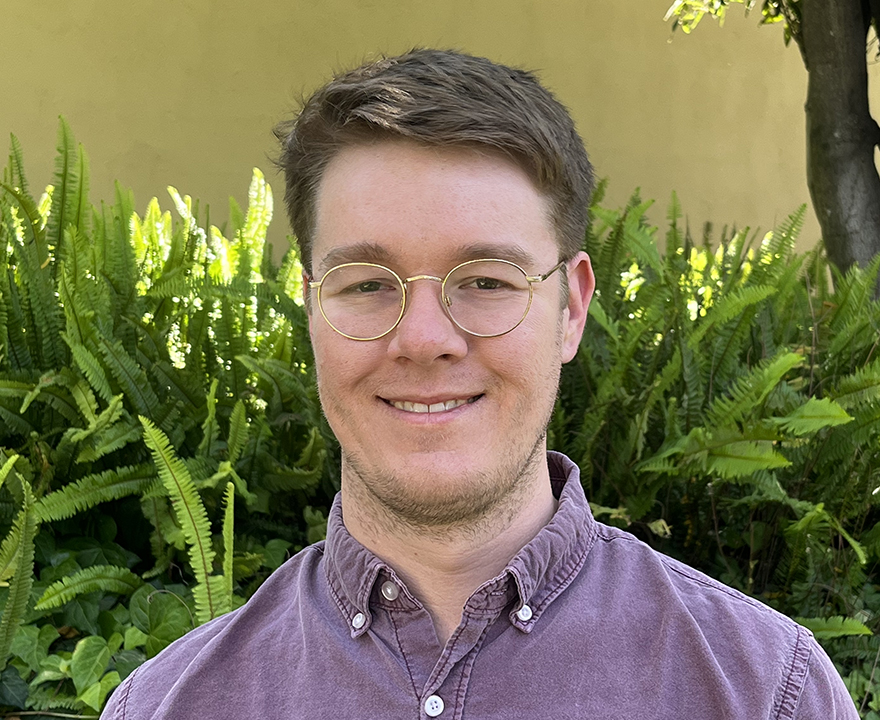Soc sci shout out: Steven Schmidt, sociology Ph.D. ’22

Soc sci shout out: Steven Schmidt, sociology Ph.D. ’22
- June 3, 2022
- After his hooding ceremony in June, Schmidt will be heading to USC as an NSF postdoctoral fellow
-----
Name: Steven Schmidt
Department: Sociology
Hometown: Cincinnati, Ohio
Undergraduate degree, institution: Spanish, Kenyon College (Ohio)
What unique life experiences have guided your educational journey, and specifically your path to UCI?
I have been lucky to have excellent mentors from my BA all the way through my Ph.D. When I started undergrad, I came to campus with a pretty set idea of what I wanted to study, but my undergrad advisors encouraged me to explore academically before I found the right fit. That journey had a lot of stops and starts, but eventually helped me find my home in sociology. Looking back, I’m so glad that I took their advice. They provided a model for how I approach student advising today.
What made you decide to pursue your current field of study – and why at UCI?
Like many U.S. college students, I had no exposure to sociology before getting to college. I was a Spanish major, but the process of writing my senior project at Kenyon introduced me to sociological research on residential segregation and urban inequality. I realized then that it was possible to study these dynamics systematically. I wasn’t certain where I wanted to take my studies at UCI, but I knew I would focus on urban inequality. When it came to selecting a program, this actually helped guide my decision—the UCI sociology department has a lot of research strengths and methodological diversity. That was important to me as a prospective student, and I think I have really benefited from that breadth of expertise.
What interests you most about your work?
When I interview renters, I am still struck by how central homes are to our health and social lives. Homes shape household budgets, family relationships, sleep quality, and physical health. Everyone deserves access to safe, dignified and affordable shelter!
What implications does your research have for the general community?
My work highlights the social costs of unaffordable housing markets and how these costs are unequally distributed across Southern California’s families. I show how tenant screening practices create advantages for renters who have access to intergenerational family resources. Strict tenant screening practices also make it difficult for undocumented and mixed status immigrant families to move away from substandard homes. I hope that my work can motivate alternative tenant screening practices and greater oversight over housing maintenance and disrepair.
Who were your faculty mentors while here, and what impact have they had on your graduate career?
I have been lucky to have many wonderful faculty mentors at UCI, but I have to give a special shout out to my advisor, Kristin Turney. As an advisor, Kristin has always supported my research at UCI and helped me navigate all of the opportunities, rejections, and redirections that come with academia. I am so grateful for her support!
What do you plan to do after finishing your graduate degree? How has UCI prepared you well for this role?
In fall 2022, I’ll be joining the sociology department at the University of Southern California as an NSF Social, Behavioral, and Economic Sciences Postdoctoral Fellow. While I’m at USC, I’ll continue to work with Los Angeles renters and will begin a book project that looks at renter immobility in high-cost housing markets and the consequences of immobility for family wellbeing.
Any other tidbits you’d like to share? Parting advice?
During my last two years at UCI, I have had a great community of graduate student colleagues in the sociology department who have helped me finish my dissertation through writing groups, including Noemi Linares Ramirez, Vanessa Delgado, Estefani Marin, Katelyn Malae, Sara Villalta, and Steph Pullés. My perennial advice to earlier-stage students is to find a writing community that works for you and stick with it!
-----
Would you like to get more involved with the social sciences? Email us at communications@socsci.uci.edu to connect.
Share on:
Related News Items
- Careet RightDickson receives grant to apply computational cognitive models to language acquisition
- Careet RightUCI sociologists earn American Sociological Association honors, leadership roles
- Careet RightMultiple honors for UCI soc sci's Maricela Bañuelos
- Careet RightSoc sci shout out: Steven Schmidt, sociology Ph.D. '22
- Careet RightA lesson in solidarity


